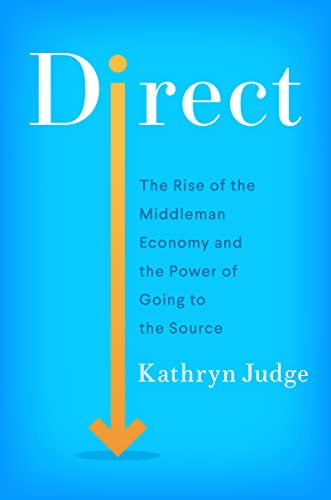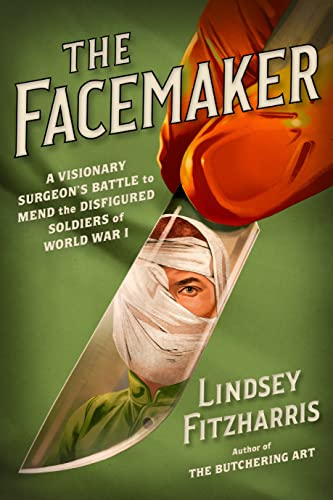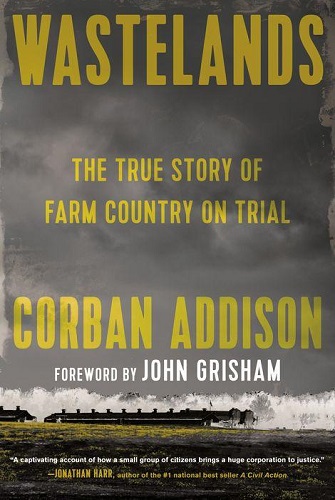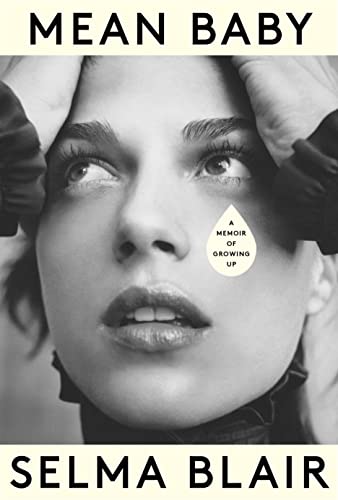This week's new Non-Fiction book releases include James Patterson's memoir, a look at the role of middle men in our economy, a biography of Ricky Henderson, and more.

JAMES PATTERSON
by James Patterson
“I felt I was interviewing James Patterson under the highest permissible does of sodium pentothal, the truth serum, for hours—and he spilled the whole story of his truly astonishing life.”—Bob Woodward
How did a kid whose dad lived in the poorhouse become the most successful storyteller in the world?
On the morning he was born, he nearly died.
His dad grew up in the Pogey– the Newburgh, New York, poorhouse.
He worked at a mental hospital in Massachusetts, where he met the singer James Taylor and the poet Robert Lowell.
While he toiled in advertising hell, James wrote the ad jingle line “I’m a Toys ‘R’ Us Kid.”
He once watched James Baldwin and Norman Mailer square off to trade punches at a party.
He’s only been in love twice. Both times are amazing.
Dolly Parton once sang “Happy Birthday” to James over the phone. She calls him J.J., for Jimmy James.
How did a boy from small-town New York become the world’s most successful writer? How does he do it? He has always wanted to write the kind of novel that would be read and reread so many times that the binding breaks and the book literally falls apart. As he says, “I’m still working on that one.”
James Patterson by James Patterson is the most anticipated memoir of 2022.

DIRECT
by Kathryn Judge
Finance expert, law professor, and fellow overwhelmed consumer Kathryn Judge investigates the surprising ways that middlemen have taken control of the economy at the expense of the rest of us, and provides practical guidance about how to regain control, find more meaning, and contribute to a more sustainable economy.
Over the past thirty years, middlemen have built intricate financial and retail empires capable of moving goods across the country and around the world—transforming the economy and our lives. Because of middlemen, we enjoy an unprecedented degree of choice and convenience. But the rise of the middleman economy comes at a steep price.
In Direct, Columbia law professor Kathryn Judge shows how overgrown middlemen became the backbone of modern capitalism and the cause of many of its ailments. Middlemen today shape what people do, how they invest, and what they consume. They use their troves of data to push people to buy more, and more expensive, products. They use their massive profits and expertise to lobby lawmakers, tilting the playing field in their favor. Drawing on a decade of research, Judge shows how to fight back: Go to the source.
The process of direct exchange—and the resulting ecosystem of makers and consumers, investors and entrepreneurs—fosters connection and community and helps promote a more just, resilient, and accountable economic system. Direct exchange reminds us that our actions always and inevitably impact others, as it rekindles an appreciation of our inherent interconnectedness. As Judge reveals in this much-needed book, direct exchange is both the cornerstone of the solution and a tool for revealing just how much is at stake in decisions about “through whom” to buy, invest and give.

RICKEY
by Howard Bryant
“Seldom does a sports biography—especially a page-turner—so comprehensively explain the forces that made an icon the way they are.” – Sports Illustrated
From the author of The Last Hero: A Life of Henry Aaron comes the definitive biography of Hall of Famer Rickey Henderson, baseball’s epic leadoff hitter and base-stealer who also stole America’s heart over nearly five electric decades in the game.
Few names in the history of baseball evoke the excellence and dynamism that Rickey Henderson’s does. He holds the record for the most stolen bases in a single game, and he’s scored more runs than any player ever. “If you cut Rickey Henderson in half, you’d have two Hall of Famers,” the baseball historian Bill James once said.
But perhaps even more than his prowess on the field, Rickey Henderson’s is a story of Oakland, California, the town that gave rise to so many legendary athletes like him. And it’s a story of a sea change in sports, when athletes gained celebrity status and Black players finally earned equitable salaries. Henderson embraced this shift with his trademark style, playing for nine different teams throughout his decades-long career and sculpting a brash, larger-than-life persona that stole the nation’s heart. Now, in the hands of critically acclaimed sportswriter and culture critic Howard Bryant, one of baseball’s greatest and most original stars finally gets his due.

SCORPIONS' DANCE
by Jefferson Morley
For the 50th anniversary of the Watergate break-in: The untold story of President Richard Nixon, CIA Director Richard Helms, and their volatile shared secrets that ended a presidency.
Scorpions’ Dance by intelligence expert and investigative journalist Jefferson Morley reveals the Watergate scandal in a completely new light: as the culmination of a concealed, deadly power struggle between President Richard Nixon and CIA Director Richard Helms.
Nixon and Helms went back decades; both were 1950s Cold Warriors, and both knew secrets about the disastrous Bay of Pigs invasion of Cuba as well as off-the-books American government and CIA plots to remove Fidel Castro and other leaders in Latin America. Both had enough information on each other to ruin their careers.
After the Watergate burglary on June 17, 1972, Nixon was desperate to shut down the FBI’s investigation. He sought Helms’ support and asked that the CIA intervene―knowing that most of the Watergate burglars were retired CIA agents, contractors, or long-term assets with deep knowledge of the Agency’s most sensitive secrets. The two now circled each other like scorpions, defending themselves with the threat of lethal attack. The loser would resign his office in disgrace; the winner, however, would face consequences for the secrets he had kept.
Rigorously researched and dramatically told, Scorpions’ Dance uses long-neglected evidence to reveal a new perspective on one of America’s most notorious presidential scandals.

THE POPE AT WAR
by David I. Kertzer
Based on newly opened Vatican archives, a groundbreaking, explosive, and riveting book about Pope Pius XII and his actions during World War II, including how he responded to the Holocaust, by the Pulitzer Prize–winning author of The Pope and Mussolini
“Splendid . . . The Pope at War ends much of the debate about the pope and surely makes any lingering apologia for his stance implausible.”—Ian Kershaw, author of Hitler: A Biography
When Pope Pius XII died in 1958, his papers were sealed in the Vatican Secret Archives, leaving unanswered questions about what he knew and did during World War II. Those questions have only grown and festered, making Pius XII one of the most controversial popes in Church history, especially now as the Vatican prepares to canonize him.
In 2020, Pius XII’s archives were finally opened, and David I. Kertzer—widely recognized as one of the world’s leading Vatican scholars—has been mining this new material ever since, revealing how the pope came to set aside moral leadership in order to preserve his church’s power.
Based on thousands of never-before-seen documents not only from the Vatican, but from archives in Italy, Germany, France, Britain, and the United States, The Pope at War paints a new, dramatic portrait of what the pope did and did not do as war enveloped the continent and as the Nazis began their systematic mass murder of Europe’s Jews. The book clears away the myths and sheer falsehoods surrounding the pope’s actions from 1939 to 1945, showing why the pope repeatedly bent to the wills of Hitler and Mussolini.
Just as Kertzer’s Pulitzer Prize–winning The Pope and Mussolini became the definitive book on Pope Pius XI and the Fascist regime, The Pope at War is destined to become the most influential account of his successor, Pius XII, and his relations with Mussolini and Hitler. Kertzer shows why no full understanding of the course of World War II is complete without knowledge of the dramatic, behind-the-scenes role played by the pope. “This remarkably researched book is replete with revelations that deserve the adjective ‘explosive,’” says Kevin Madigan, Winn Professor of Ecclesiastical History at Harvard University. “The Pope at War is a masterpiece.”

THE FACEMAKER
by Lindsey Fitzharris
“Enthralling. Harrowing. Heartbreaking. And utterly redemptive. Lindsey Fitzharris hit this one out of the park.” ―Erik Larson, author of The Splendid and the Vile
Lindsey Fitzharris, the award-winning author of The Butchering Art, presents the compelling, true story of a visionary surgeon who rebuilt the faces of the First World War’s injured heroes, and in the process ushered in the modern era of plastic surgery.
From the moment the first machine gun rang out over the Western Front, one thing was clear: mankind’s military technology had wildly surpassed its medical capabilities. Bodies were battered, gouged, hacked, and gassed. The First World War claimed millions of lives and left millions more wounded and disfigured. In the midst of this brutality, however, there were also those who strove to alleviate suffering. The Facemaker tells the extraordinary story of such an individual: the pioneering plastic surgeon Harold Gillies, who dedicated himself to reconstructing the burned and broken faces of the injured soldiers under his care.
Gillies, a Cambridge-educated New Zealander, became interested in the nascent field of plastic surgery after encountering the human wreckage on the front. Returning to Britain, he established one of the world’s first hospitals dedicated entirely to facial reconstruction. There, Gillies assembled a unique group of practitioners whose task was to rebuild what had been torn apart, to re-create what had been destroyed. At a time when losing a limb made a soldier a hero, but losing a face made him a monster to a society largely intolerant of disfigurement, Gillies restored not just the faces of the wounded but also their spirits.
The Facemaker places Gillies’s ingenious surgical innovations alongside the dramatic stories of soldiers whose lives were wrecked and repaired. The result is a vivid account of how medicine can be an art, and of what courage and imagination can accomplish in the presence of relentless horror.

THE SPY WHO KNEW TOO MUCH
by Howard Blum
“Howard Blum writes history books that read like thrillers.”—New York Times
A retired spy gets back into the game to solve a perplexing case—and reconcile with his daughter, a CIA officer who married into the very family that derailed his own CIA career—in this compulsive true-life tale of vindication and redemption, filled with drama, intrigue, and mystery from the New York Times bestselling author of The Last Goodnight, It’s a real-life thriller whose stunning conclusion will make headline news.
On a sunlit morning in September 1978, a sloop drifts aimlessly across the Chesapeake Bay. The cabin reveals signs of a struggle, and “classified” documents, live 9 mm cartridges, and a top-secret “burst” satellite communications transmitter are discovered aboard. But where is the boat’s owner, former CIA officer John Paisley?
One man may hold the key to finding out. Tennent “Pete” Bagley was once a rising star in America’s spy aristocracy, and many expected he’d eventually become CIA director. But the star that burned so brightly exploded when Bagley—who suspected a mole had burrowed deep into the agency’s core—was believed himself to be the mole. After a year-long investigation, Bagley was finally exonerated, but the accusations tarnished his reputation and tainted his career.
When Bagley’s daughter Christina, a CIA analyst, married another intelligence officer who was the son of the man who had played a key role in the investigation into Bagley, it caused a painful rift between the two. But then came Paisley’s strange death. A murder? Suicide? Or something else? Pete, now a retired spy, launches his own investigation that takes him deep into his own past and his own longtime hunt for a mole. What follows is a relentless pursuit to solve a spy story—and an inspiring tale of a man reclaiming his reputation and his family. It’s a very personal quest that leads to a shocking conclusion.
The Spy Who Knew Too Much includes 8 pages of black-and-white photographs.

GAME
by Grant Hill
The full, frank story of a remarkable life’s journey—to the pinnacle of success as a basketball player, icon, and entrepreneur, to the depths of personal trauma and back, to a place of flourishing and peace—made possible above all by a family’s love
Grant Hill always had game. His choice of college was a subject of national interest, and his arrival at Duke University cemented the program’s arrival at the top. In his freshman year, he led the team to its first NCAA championship, and three championship appearances in four years. His Duke career produced some of the most iconic moments in college basketball history, and Coach K proved to be a lifelong mentor. Later, as one of the NBA’s best players and a new face of the Detroit Pistons franchise, Hill was the first person with the potential to give Michael Jordan a run for his money, not just as a player but as a brand. His $45 million rookie contract was almost the least of it. He turned down Nike for Fila, and soon Method Man and Tupac Shakur were wearing his shoes.
Hill writes candidly about all of it, including the transactional impermanence of life in the league and the isolation caused by his growing fame. His parents and friends helped ground him, and eventually he met a gifted musician named Tamia. The love he found with her and the arrival of their two beautiful daughters would be his rock as a brutal and mysterious injury sidelined him, coinciding with his wife’s own serious health struggles.
With openness and insight, Hill relates his entire path, including post-career highlights like his Hall of Fame induction, co-ownership of the Atlanta Hawks, the directorship of the USA Basketball Men’s National Team, and even a yearly gig calling the Final Four. Hill’s father, Calvin, used to tell him that there were always a lot of reasons but never any excuses, and Game is a distillation of a lifetime’s effort to understand the reasons—the good and the bad. At his hardest moments, Hill sought out wisdom from others, stories of inspiration and overcoming obstacles. Now, with Game, he has returned the favor.

WASTELANDS
by Corban Addison
“Beautifully written, impeccably researched, and told with the air of suspense that few writers can handle, Wastelands is a story I wish I had written.” —From the Foreword by John Grisham
The once idyllic coastal plain of North Carolina is home to a close-knit, rural community that for more than a generation has battled the polluting practices of large-scale farming taking place in its own backyard. After years of frustration and futility, an impassioned cadre of local residents, led by a team of intrepid and dedicated lawyers, filed a lawsuit against one of the world’s most powerful companies—and, miraculously, they won.
As vivid and fast-paced as a thriller, Wastelands takes us into the heart of a legal battle over the future of America’s farmland and into the lives of the people who found the courage to fight.
There is Elsie Herring, the most outspoken of the neighbors, who has endured racial slurs and the threat of a restraining order to tell the story of the waste raining down on her rooftop from the hog operation next door. There is Don Webb, a larger-than-life hog farmer turned grassroots crusader, and Rick Dove, a riverkeeper and erstwhile military judge who has pioneered the use of aerial photography to document the scale of the pollution. There is Woodell McGowan, a quiet man whose quest to redeem his family’s ancestral land encourages him to become a better neighbor, and Dr. Steve Wing, a groundbreaking epidemiologist whose work on the health effects of hog waste exposure translates the neighbors’ stories into the argot of science. And there is Tom Butler, an environmental savant and hog industry insider whose whistleblowing testimony electrifies the jury.
Fighting alongside them in the courtroom is Mona Lisa Wallace, who broke the gender barrier in her small southern town and built a storied legal career out of vanquishing corporate giants, and Mike Kaeske, whose trial skills are second to none.
With journalistic rigor and a novelist’s instinct for story, Corban Addison’s Wastelands captures the inspiring struggle to bring a modern-day monopoly to its knees, to force a once-invincible corporation to change, and to preserve the rights—and restore the heritage—of a long-suffering community.
Still Hot in Non-Fiction & Biography

RIVER OF THE GODS
by Candice Millard
NEW YORK TIMES BEST SELLER • The harrowing story of one of the great feats of exploration of all time and its complicated legacy—from the New York Times bestselling author of The River of Doubt and Destiny of the Republic
For millennia the location of the Nile River’s headwaters was shrouded in mystery. In the 19th century, there was a frenzy of interest in ancient Egypt. At the same time, European powers sent off waves of explorations intended to map the unknown corners of the globe – and extend their colonial empires.
Richard Burton and John Hanning Speke were sent by the Royal Geographical Society to claim the prize for England. Burton spoke twenty-nine languages, and was a decorated soldier. He was also mercurial, subtle, and an iconoclastic atheist. Speke was a young aristocrat and Army officer determined to make his mark, passionate about hunting, Burton’s opposite in temperament and beliefs.
From the start the two men clashed. They would endure tremendous hardships, illness, and constant setbacks. Two years in, deep in the African interior, Burton became too sick to press on, but Speke did, and claimed he found the source in a great lake that he christened Lake Victoria. When they returned to England, Speke rushed to take credit, disparaging Burton. Burton disputed his claim, and Speke launched another expedition to Africa to prove it. The two became venomous enemies, with the public siding with the more charismatic Burton, to Speke’s great envy. The day before they were to publicly debate,Speke shot himself.
Yet there was a third man on both expeditions, his name obscured by imperial annals, whose exploits were even more extraordinary. This was Sidi Mubarak Bombay, who was enslaved and shipped from his home village in East Africa to India. When the man who purchased him died, he made his way into the local Sultan’s army, and eventually traveled back to Africa, where he used his resourcefulness, linguistic prowess and raw courage to forge a living as a guide. Without Bombay and men like him, who led, carried, and protected the expedition, neither Englishman would have come close to the headwaters of the Nile, or perhaps even survived.
In River of the Gods Candice Millard has written another peerless story of courage and adventure, set against the backdrop of the race to exploit Africa by the colonial powers.

MEAN BABY
by Selma Blair
NEW YORK TIMES BEST SELLER • Selma Blair has played many roles: Ingenue in Cruel Intentions. Preppy ice queen in Legally Blonde. Muse to Karl Lagerfeld. Advocate for the multiple sclerosis community. But before all of that, Selma was known best as … a mean baby. In a memoir that is as wildly funny as it is emotionally shattering, Blair tells the captivating story of growing up and finding her truth.
“Blair is a rebel, an artist, and it turns out: a writer.” —Glennon Doyle, Author of the #1 New York Times Bestseller Untamed and Founder of Together Rising
The first story Selma Blair Beitner ever heard about herself is that she was a mean, mean baby. With her mouth pulled in a perpetual snarl and a head so furry it had to be rubbed to make way for her forehead, Selma spent years living up to her terrible reputation: biting her sisters, lying spontaneously, getting drunk from Passover wine at the age of seven, and behaving dramatically so that she would be the center of attention.
Although Selma went on to become a celebrated Hollywood actress and model, she could never quite shake the periods of darkness that overtook her, the certainty that there was a great mystery at the heart of her life. She often felt like her arms might be on fire, a sensation not unlike electric shocks, and she secretly drank to escape.
Over the course of this beautiful and, at times, devasting memoir, Selma lays bare her addiction to alcohol, her devotion to her brilliant and complicated mother, and the moments she flirted with death. There is brutal violence, passionate love, true friendship, the gift of motherhood, and, finally, the surprising salvation of a multiple sclerosis diagnosis.
In a voice that is powerfully original, fiercely intelligent, and full of hard-won wisdom, Selma Blair’s Mean Baby is a deeply human memoir and a true literary achievement.
